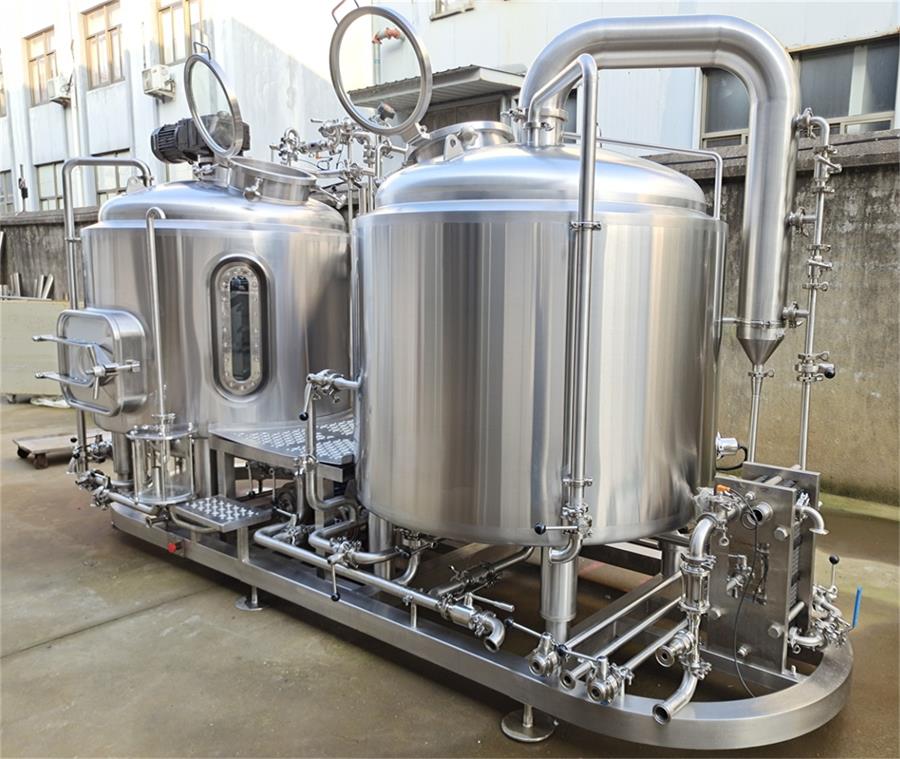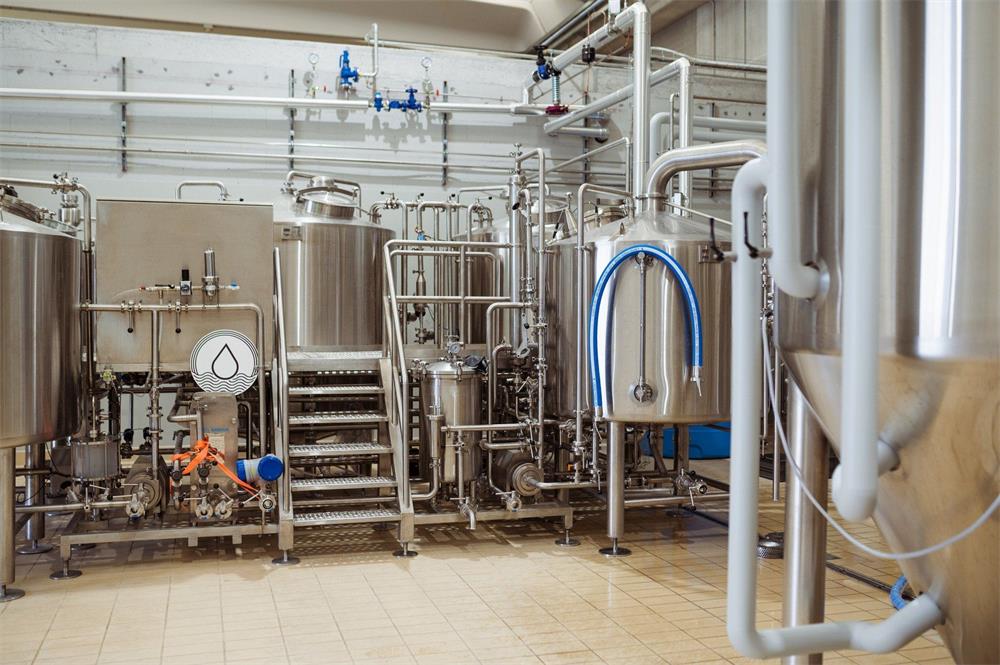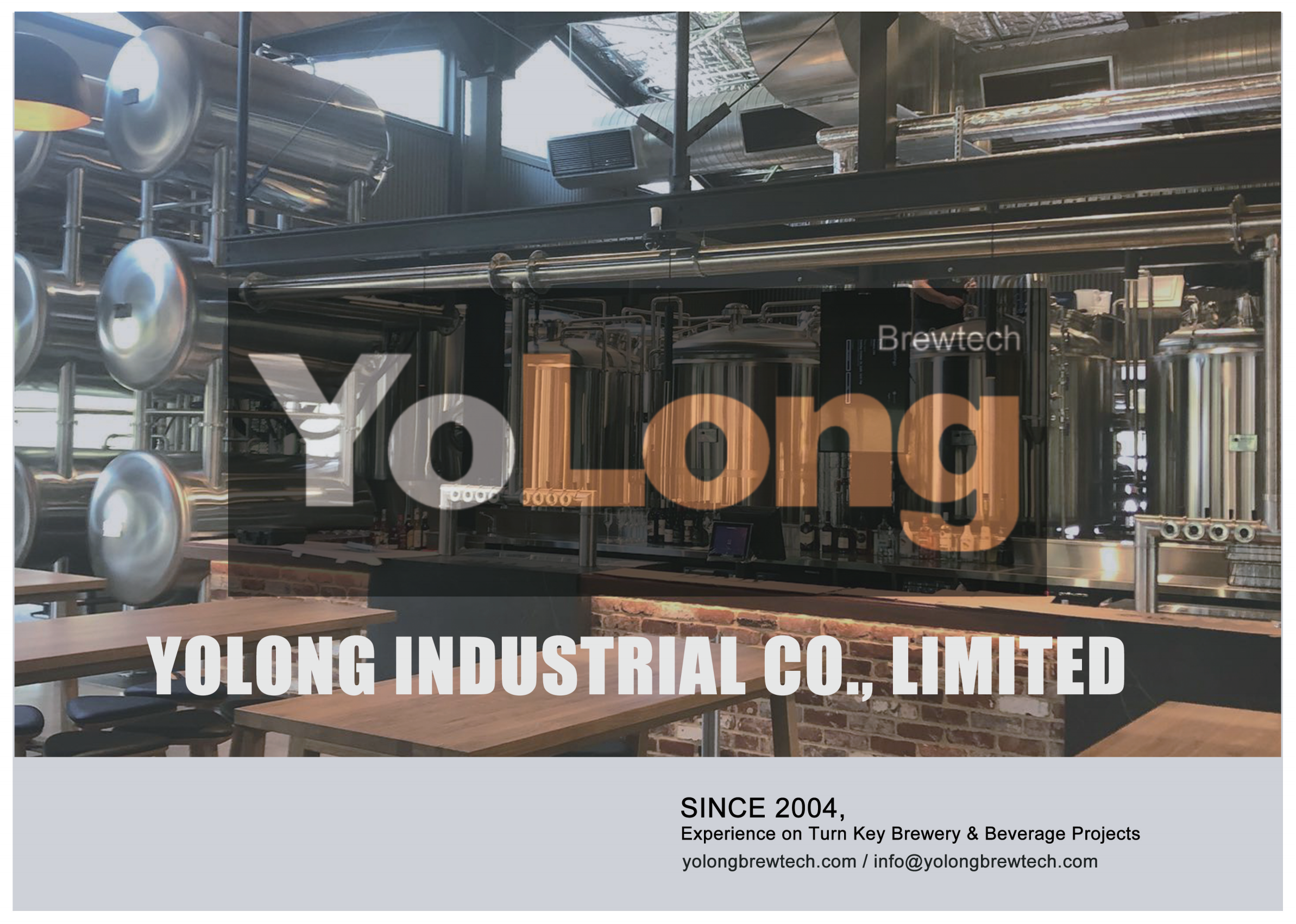Professional Brewing Equipment
Brewing has been part of human civilization for centuries, evolving from simple homebrewing methods to large-scale industrial production. Whether you’re setting up a microbrewery or expanding a large brewing operation, choosing the right professional brewing equipment is essential for producing high-quality beer, optimizing production, and scaling your business. In this guide, we’ll break down everything you need to know about professional brewing equipment, including an equipment guide, brewing process, customization options, suppliers, and more.
Overview of Professional Brewing Equipment
When it comes to brewing on a commercial scale, precision and efficiency are paramount. Professional brewing equipment is designed to meet these needs, ensuring that brewers can maintain consistency in taste, control over the brewing process, and cost-effectiveness. From malt mills to fermenters and everything in between, the right equipment can make or break your brewing business.
At its core, professional brewing equipment includes various vessels and machinery that facilitate each step of the brewing process. These tools allow brewers to mash, ferment, filter, and package beer with minimal manual labor. However, the selection of equipment depends on several factors, such as production scale, budget, and the type of beer being brewed.

Professional Brewing Equipment Guide
Brewing equipment can be broadly categorized based on the brewing stage. Below is a detailed breakdown of the key equipment used in each stage:
Malt Milling Equipment
The first step in brewing is preparing the malt, and a malt mill is essential for crushing malted barley and other grains. Professional malt milling machines allow precise control over the grind size, ensuring optimal sugar extraction during mashing.
Mash Tun
The mash tun is where the magic happens—this vessel is used to mix milled grains with water to extract fermentable sugars. It’s important that the mash tun maintains consistent temperature control and adequate mixing for efficient starch conversion.
Lauter Tun
Once mashing is complete, the lauter tun separates the liquid wort from the grain. High-quality lauter tuns have efficient false bottoms to improve wort clarity and avoid clogging.
Brew Kettle
The wort is then boiled in the brew kettle, where hops are added for bitterness, flavor, and aroma. Brew kettles need strong temperature controls, along with features like whirlpools to enhance hop extraction and reduce impurities.
Fermenters
Fermentation vessels come in various sizes and designs, depending on production capacity. Stainless steel fermenters are widely preferred for their durability, ease of cleaning, and precise control over temperature during fermentation.
Bright Beer Tanks
After fermentation, bright beer tanks are used to store the beer for carbonation and conditioning. These tanks help ensure clarity and flavor stabilization before packaging.
Packaging Systems
Once the beer is ready, it needs to be packaged in bottles, cans, or kegs. Automated packaging systems, including fillers and cappers, ensure minimal oxygen exposure and high-speed production.
Types of Professional Brewing Equipment
| Equipment Type | Description | Features |
|---|---|---|
| Malt Mill | Grinds malted grains to extract fermentable sugars. | Adjustable grind size, rollers for even milling, high throughput for commercial use. |
| Mash Tun | Vessel for mixing malt with hot water to begin sugar extraction. | Insulated, temperature control, agitation paddles for even mixing. |
| Lauter Tun | Used to separate wort from spent grain after mashing. | False bottom design, sparging arm, efficient draining system. |
| Brew Kettle | Boils the wort and allows hops and other ingredients to be added for flavor and bitterness. | Whirlpool system, precise temperature control, steam jacket for efficient heating. |
| Fermenter | Vessel for fermenting the beer. Fermenters vary in size, design, and material depending on brewing capacity. | Cylindroconical design, temperature-controlled jacket, easy-to-clean valves. |
| Bright Beer Tank | Holds beer post-fermentation for conditioning, carbonation, and clarification before packaging. | Cooling jackets, pressure relief valves, carbonation stones. |
| Packaging System | Automated system for filling, capping, and sealing bottles, cans, or kegs with beer. | High-speed filling, oxygen control, automated cleaning-in-place (CIP) systems. |
The Brewing Process: From Grain to Glass
Mashing
Mashing is the process of mixing milled grains with water to activate the enzymes that convert starches to fermentable sugars. This step requires precise temperature control, typically between 148°F and 158°F, depending on the style of beer.
Boiling
After mashing, the wort is transferred to the brew kettle for boiling. Boiling sterilizes the wort and also allows hops to be added, which imparts bitterness and aroma. The wort is typically boiled for 60 to 90 minutes.
Fermentation
Once the wort has cooled, yeast is added, and the fermentation process begins. During this stage, yeast converts sugars into alcohol and carbon dioxide. This process can last anywhere from a few days to several weeks depending on the beer style.
Conditioning
After fermentation, the beer is transferred to bright tanks for conditioning and carbonation. During conditioning, flavors mature, and the beer clears up, becoming bright and ready for packaging.
Packaging
The final stage is packaging the beer into bottles, cans, or kegs. It’s essential that this step is done with minimal oxygen exposure to preserve the beer’s freshness and extend shelf life.
Capacity, Space, Design, and Customization Options
| Category | Details |
|---|---|
| Capacity | Brewing systems come in different capacities, from small 5-barrel systems for microbreweries to 100+ barrel systems for large-scale production. Choose based on your projected output. |
| Space Requirements | The available space in your brewery will determine the size and layout of your equipment. Compact systems are ideal for smaller spaces, while larger brewhouses need more room for additional tanks and machinery. |
| Design | Aesthetics can be important for customer-facing breweries. Consider systems with a polished stainless steel finish for a professional appearance. |
| Customization | Equipment can be customized for specific beer styles, production methods, or brewing techniques. Customizable options include additional insulation, automation systems, and enhanced cleaning-in-place (CIP) setups. |
Professional Brewing Equipment Suppliers and Price Range
| Supplier | Price Range | Details |
|---|---|---|
| BrauKon | $150,000 – $1,000,000+ | High-end brewing systems with full customization options for medium to large breweries. |
| Ss Brewtech | $10,000 – $200,000 | Affordable systems for small to medium breweries, with a focus on scalability. |
| Premier Stainless Systems | $50,000 – $500,000 | Specializes in mid-sized brewery setups with both semi-automated and fully automated equipment. |
| Prospero Equipment | $20,000 – $300,000 | Offers modular brewing systems, ideal for microbreweries or expanding brewpubs. |
| Specific Mechanical | $100,000 – $700,000 | Custom-built brewing systems designed for small craft breweries and larger scale production facilities. |
Installation, Operation, and Maintenance of Professional Brewing Equipment
| Category | Details |
|---|---|
| Installation | Professional installation is highly recommended, as brewing systems are complex and require precise setup to ensure proper function. Some suppliers offer on-site setup services. |
| Operation | Modern systems come with automated controls, making operation easier. However, training staff on the equipment is critical for optimal brewing and safety. |
| Maintenance | Regular cleaning and maintenance are crucial for maintaining the longevity of brewing equipment. Many systems are equipped with CIP (clean-in-place) systems for ease. |
How to Choose a Professional Brewing Equipment Supplier
| Consideration | Details |
|---|---|
| Experience | Choose suppliers with proven expertise in the brewing industry and a history of delivering high-quality systems. |
| Customization | Suppliers that offer customizable options are ideal if you have specific brewing needs or space constraints. |
| Warranty & Support | Ensure the supplier offers strong warranty terms and ongoing technical support, especially for more complex equipment. |
| Customer Reviews | Research customer reviews and testimonials to gauge satisfaction and performance from other breweries that have used the supplier’s equipment. |
| Price vs. Value | Don’t just look at the price tag—consider the long-term value in terms of reliability, efficiency, and ease of use. |

Pros and Cons of Different Professional Brewing Equipment
| Equipment Type | Advantages | Disadvantages |
|---|---|---|
| Stainless Steel Fermenters | Durable, easy to clean, and corrosion-resistant. Excellent for temperature control. | Higher cost than plastic or other alternatives. |
| Automated Packaging Systems | Increases production speed, reduces manual labor, and ensures consistent packaging quality. | Initial setup cost can be high, and they require regular maintenance and calibration. |
| Modular Systems | Flexible and scalable for growing breweries. Allows for expansion without replacing the entire system. | Can be less efficient than purpose-built systems for large-scale production. |
| Custom-Built Equipment | Tailored to your brewing process and space constraints. | Longer lead times for manufacturing, and higher upfront cost. |
FAQ
| Question | Answer |
|---|---|
| What capacity system do I need for a microbrewery? | For a microbrewery, a 5 to 20-barrel brewing system is typically sufficient, depending on your projected output and demand. |
| How much space do I need for brewing equipment? | Space requirements vary by system size, but on average, you should have at least 1,500 square feet for a small-scale brewery. Larger setups require significantly more space. |
| How often should brewing equipment be maintained? | Regular maintenance is essential—daily cleaning of tanks and pipes is recommended, with more in-depth maintenance (like inspecting valves and seals) done monthly. |
| Can I customize my brewing equipment? | Yes, many suppliers offer customizations based on your brewing needs, such as additional insulation, automation features, or space-saving designs. |
| What is the price range for professional brewing systems? | Prices can range from $10,000 for small systems to over $1,000,000 for large-scale, fully automated brewhouses. |
In conclusion, investing in the right professional brewing equipment is crucial for ensuring efficiency, quality, and scalability in your brewing business. By understanding your specific production needs, space constraints, and budget, you can select the best equipment to craft your perfect beer.
Share this entry
Interested in learning more about Brewing Systems including additional details and pricing information? Please use the form below to contact us!
YOLONG BREWERY EQUIPMENT FAQS
- Commercial Brewery / Craft Brewery / Microbrewery / Nanobrewery
- What is The Difference Between Craft Beer and Industrial Beer?
- The Bespoke Differences In Custom Brewing Systems
- Everything You Need to Know About Kettle Souring
- How to Choose Brewing Equipment for Your business?
- How To Choose The-Best Partner To Build Your Commercial Microbrewing System?
- Two Detection Sensors That You Need To Use In Your Brewhouse System
- Remote Control Applications in Brewing Equipment/How does it work?
- How To Clean Your Brand New Brewery Tanks?

